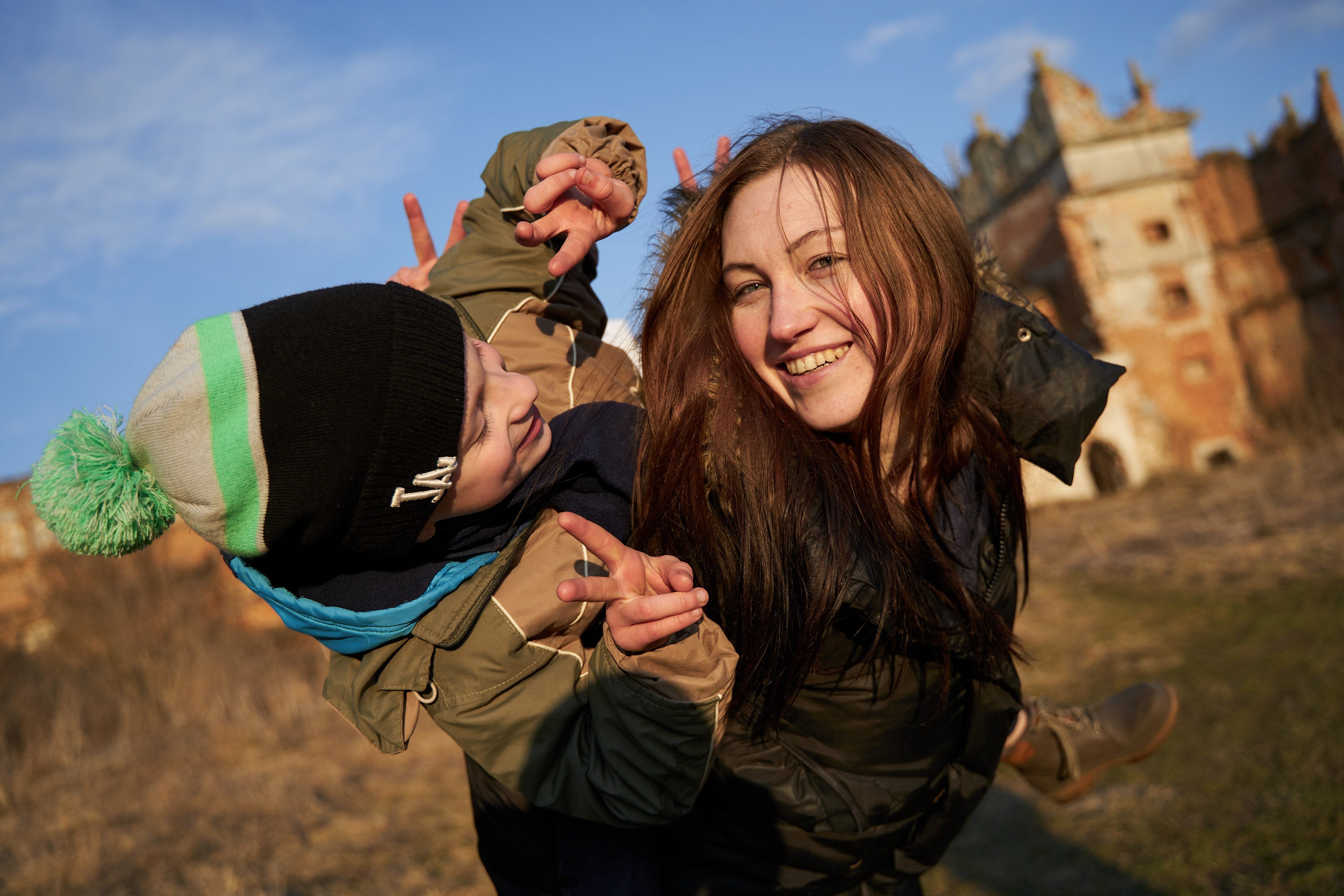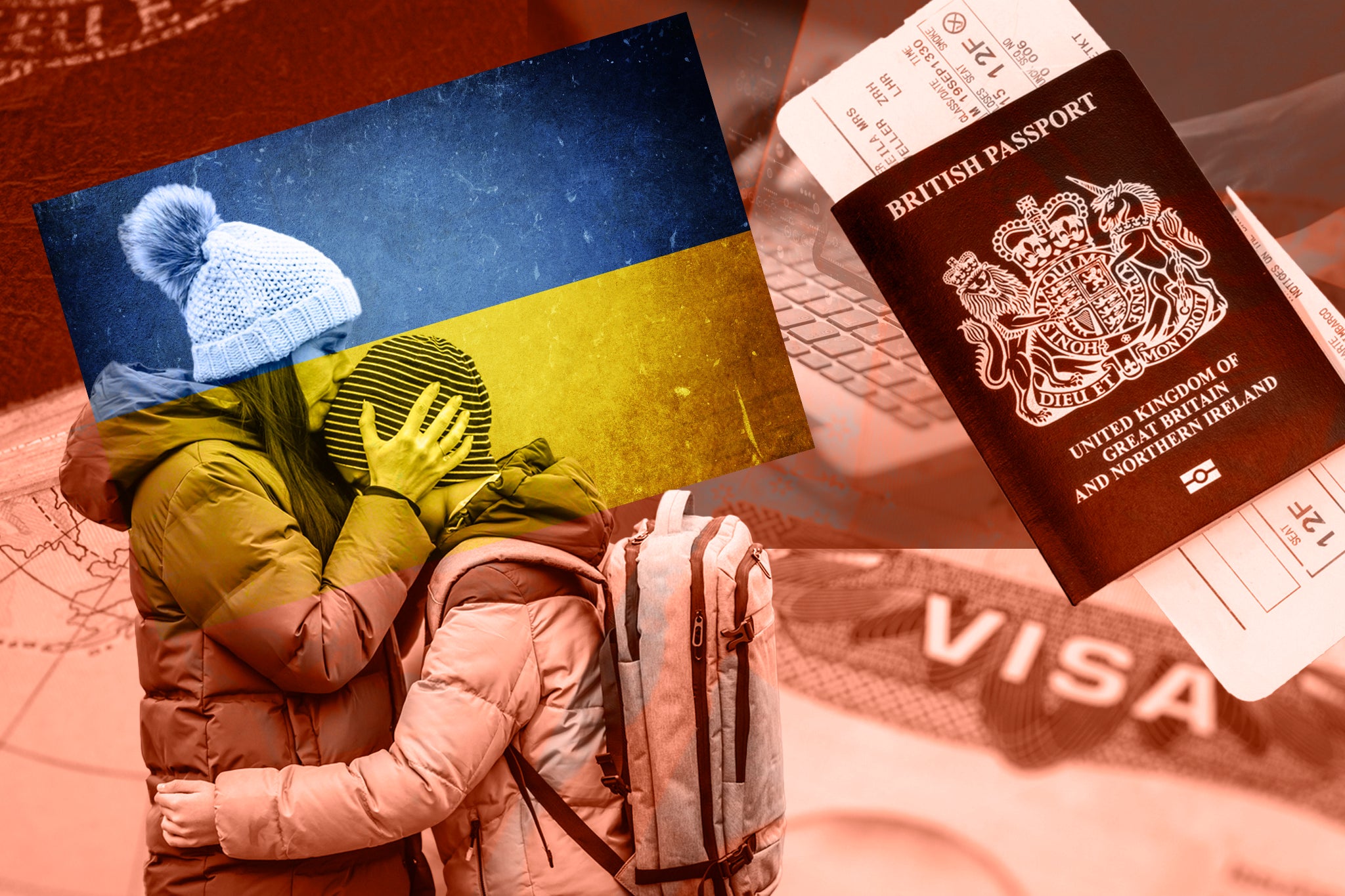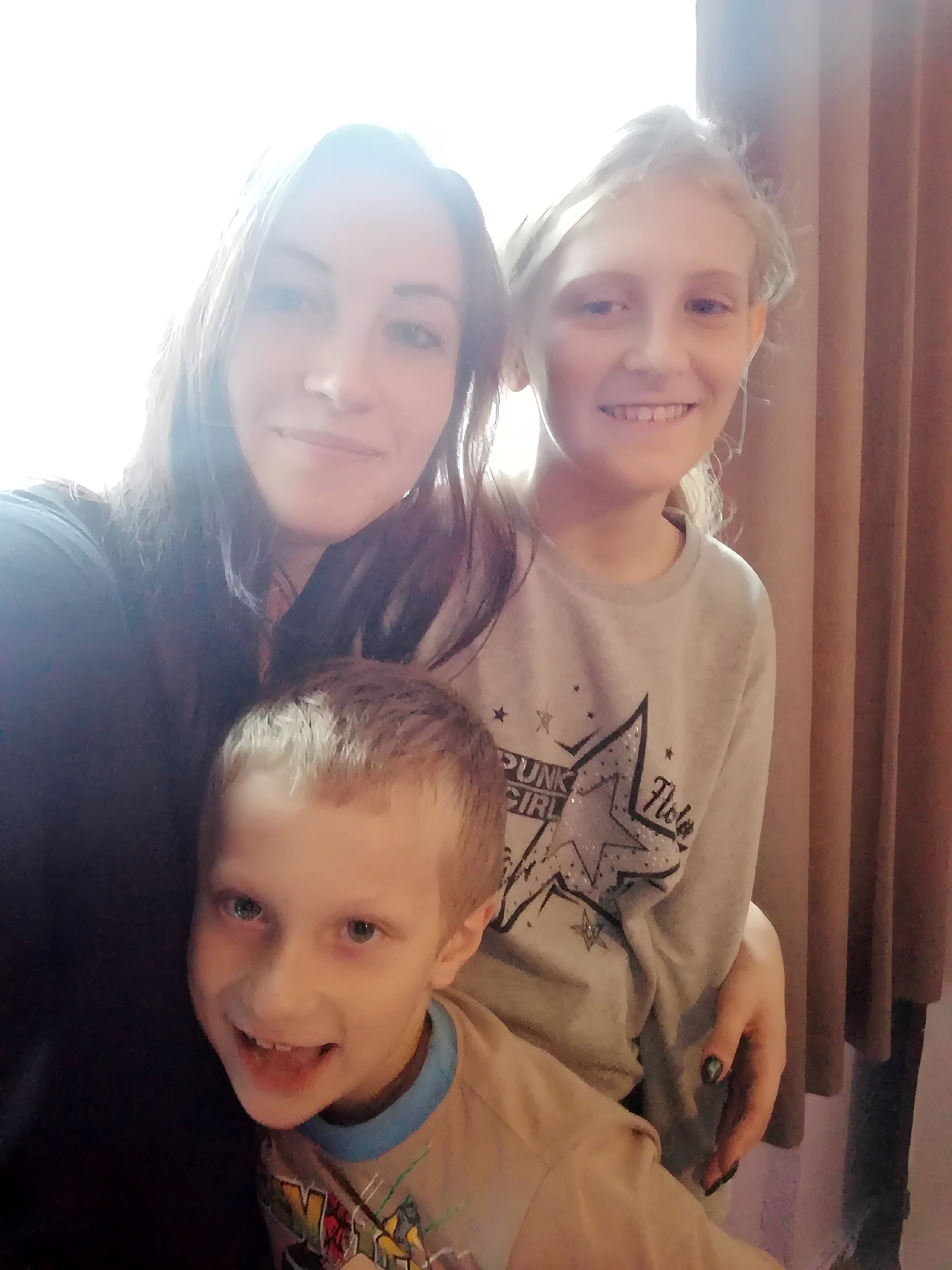This website uses cookies so that we can provide you with the best user experience possible. Cookie information is stored in your browser and performs functions such as recognising you when you return to our website and helping our team to understand which sections of the website you find most interesting and useful.
Your support helps us to tell the story
This election is still a dead heat, according to most polls. In a fight with such wafer-thin margins, we need reporters on the ground talking to the people Trump and Harris are courting. Your support allows us to keep sending journalists to the story.
The Independent is trusted by 27 million Americans from across the entire political spectrum every month. Unlike many other quality news outlets, we choose not to lock you out of our reporting and analysis with paywalls. But quality journalism must still be paid for.
Help us keep bring these critical stories to light. Your support makes all the difference.
A Ukrainian refugee says she is living in a “surreal nightmare” after she was refused permission to bring her two children to the UK.
Pressure is mounting on ministers to open a family reunion pathway for Ukrainians with temporary immigration status, after the rules were changed without warning in February. Charities say that the Home Office’s “restrictive rules and poor decision-making” are “tearing families apart”.
Maria Kondratska, who arrived in Britain just months before Russia’s full-scale invasion, is now appealing on human rights grounds after the Home Office refused her application for her son and daughter, aged 11 and 15, to be given refuge with her in Britain.

Having arrived on a seasonal worker’s visa, Ms Kondratska had applied under the now-defunct Ukraine Family Scheme for her children to join her. They are living with their grandparents close to the border with Belarus. Her efforts have been hampered by her staying in shared accommodation which bars her from sponsoring her children.
But the 35-year-old described going “crazy with hopelessness” while waiting for a tribunal judge to decide whether she can appeal the Home Office’s refusal in August 2023 – as she lives in continual fear for her children’s safety.
While the Home Office insists she has no right of appeal, the charity Safe Passage has helped Ms Kondratska to challenge this in the tribunal courts on human rights grounds. Her latest request to appeal – lodged in April – was finally granted last week.
On the day Ms Kondratska contacted The Independent, a Russian attack cut the electricity in the city of Kovel, where her children live, leaving her unable to contact them. The power supply remains unstable and the city remains subject to air raid alerts, Ms Kondratska said.
“I regularly wake up in nightmares worrying about my children,” she said, adding: “I have a simple, elementary basic desire: to finally hug my children and be with them, know that they are safe ... Right now, I’m not living – I’m existing in waiting.”

Ms Kondratska said her elderly parents’ physical health has also deteriorated, leaving them less able to take care of her children.
The mother, who suffers from osteoporosis and osteoarthritis, said the stress of the situation is hampering her ability to retain information and concentrate as she seeks to learn English, in a bid to make enough money to rent a suitable home to act as a Homes for Ukraine sponsor for her children.
But even once she finds accommodation in line with the eligibility rules, she now fears that route has been closed off entirely, after the overnight changes brought in by Rishi Sunak’s government barred Ukrainians without UK citizenship or indefinite leave to remain from acting as sponsors.

The Independent has highlighted multiple cases in which Ukrainian refugees have been refused permission to bring their children to Britain as a result of the changes. While the Home Office U-turned in the case of one toddler in July, many other families remain separated.
Safe Passage International, one of several charities offering free legal support for Ukrainians in the UK, told The Independent in July that it was supporting 84 separated Ukrainian families who had sought help since the rules were changed on 19 February.
Of those, 16 cases involved families where at least one parent was either separated from their children or had been forced to go back to Ukraine or Poland to be with their children and were then unable to return to the UK.

Referring to Ms Kondratska’s case, the charity’s chief executive, Dr Wanda Wyporska, said: “This terrible decision from the Home Office will deny children, in a war zone, the chance to be safe here with their mother. A heartbroken mother has been refused the chance to appeal the cruel decision.”
“The Home Office’s restrictive rules and poor decision-making has condemned too many families to a life of separation, tearing families apart and keeping children from their families,” said Dr Wyporska.
“This government can quickly change the rules to keep families escaping the relentless war together. The government must open a family reunion pathway for Ukrainians with temporary status in the UK. The families and children we’re working with face indefinite separation without it.”
The Home Office said it would not comment on individual cases.
Labour peer Lord Alf Dubs, who arrived in the UK as a six-year-old fleeing the Nazis, previously told The Independent the “deeply shocking” rule change in February “betrays our commitment to Ukrainians”.
“It is urgent, because some of these are very hard cases...” he said. “And I very much hope that the new ministers will look at it very quickly.”



 Africana55 Radio
Africana55 Radio 
